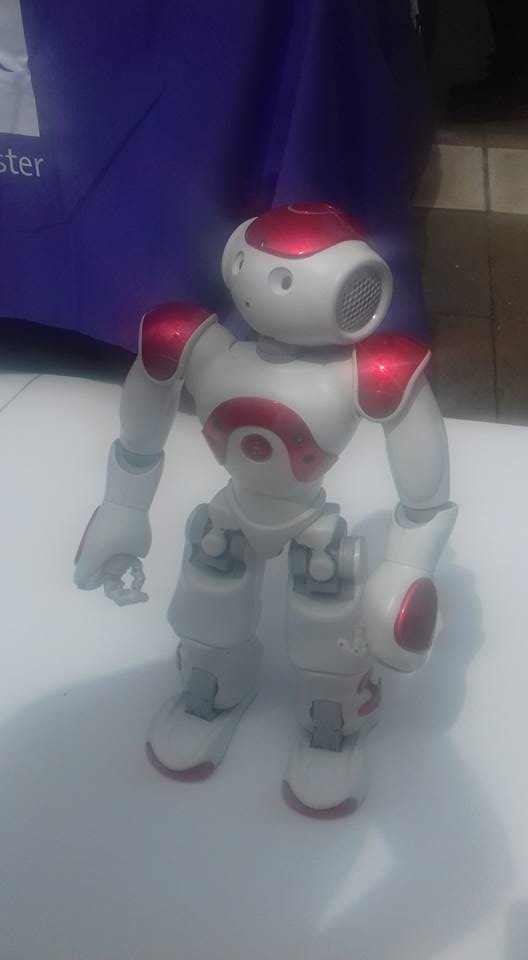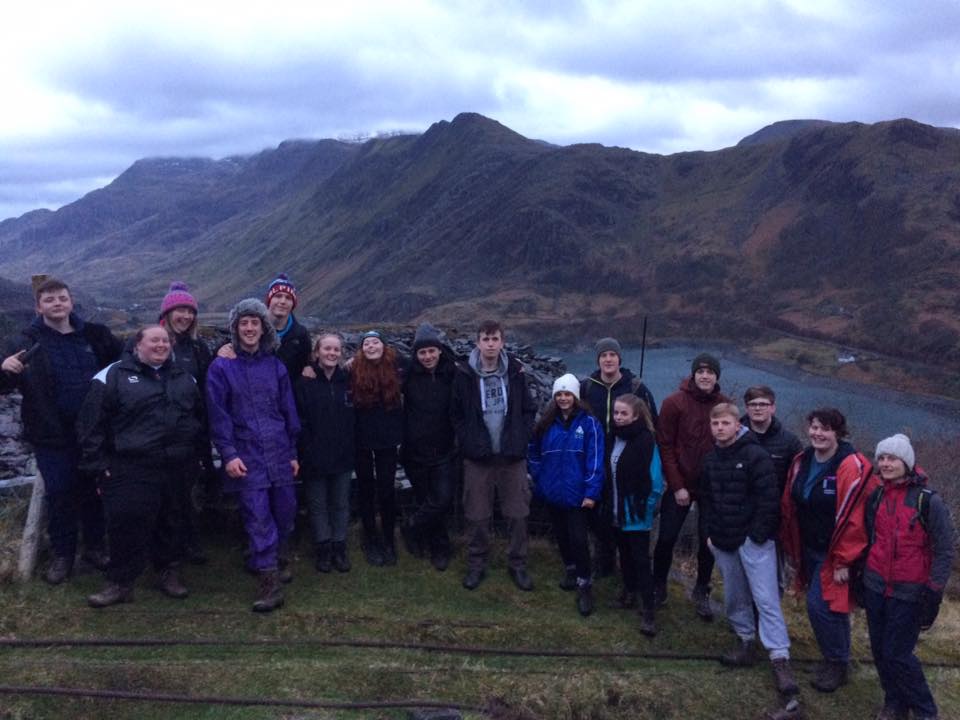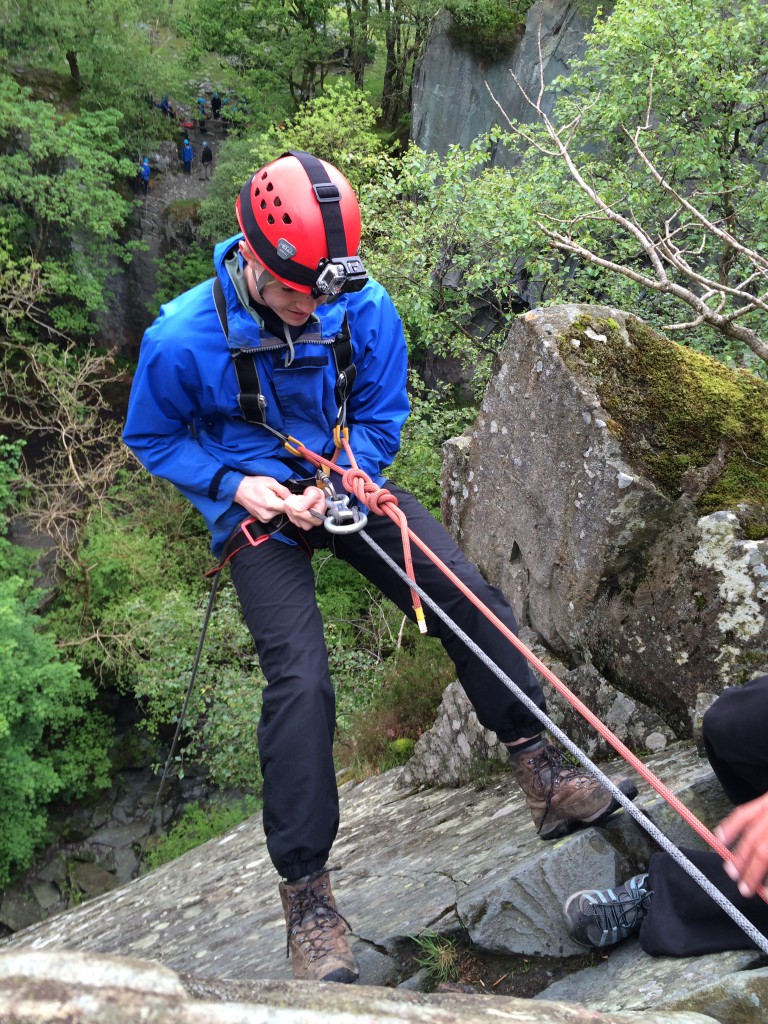Back to the workshop as campus reopens
15 Jul 2020
Technical Apprentice Kerris Boulton provides an insight into working on campus during its phased reopening
As part of the University’s contribution to the fight against the pandemic, the Manchester Institute of Biotechnology (MIB), based in the John Garside Building, has been open throughout lockdown to provide a home for Covid-19 related research.
When the phased reopening of campus began the Faculty of Science and Engineering started with safely expanding the capacity in the MIB. But, with that more technical support was needed. To fill this need technical apprentice, Kerris Boulton, volunteered to return to work on campus.
“For research to happen equipment needs to function and be safe to operate. If the equipment can’t be used, then the research can’t take place. So, the first thing I did upon my return was to create a procedure for how to get equipment PAT tested and repaired so our research could continue. Since being back I have repaired centrifuges, autoclaves and even calibrated some of the oxygen depletion alarms in the building.
“Being back on campus is great, getting back to some normality has been very beneficial for me and really helped with my wellbeing. There are definitely a lot of changes that are hard to get used to – writing down where you have been, constantly wiping every surface and sanitising your hands. Walking the long way round the building due to one way systems is sometimes hard to follow, especially when you are trying to get things done, but it’s there for a good reason and you just have to be patient and understanding that things will take longer than before.
“Everyone is respectful of the systems in place and people are just genuinely happy to see familiar faces they haven’t seen in a few months. During my first week back myself and a few other people in the building ordered lunch and sat and ate together – although obviously we sat further apart. It reminded me that the University is still a community and I think it’s nice that even with this going on that feeling of belonging and being part of something is still there.”
Kerris has been part of the University’s Technical Apprenticeship Programme as an Apprentice Electronics Support Technician for the last six years providing technical support to students, lecturers and research associates. Having successfully completed her Advanced Apprenticeship and HNC in Electrical and Electronic Engineering she is now working towards a Degree Apprenticeship in Electrical and Electronic Engineering.
Apprenticeship Vacancies at The University of Manchester – OPEN NOW
The University of Manchester Technical Apprenticeship Programme in Laboratory and Associated Technical Activities was created to help solve the future demand for skilled technical staff across the University by granting young local people entry to employment via well thought out and structured training positions.
The programme is expected to encourage apprentices to develop their careers over time and become analytical scientist/support staff, senior experimental officers, laboratory technicians, technical service managers or project managers, replacing some of the outgoing staff.
The programme of activities needed to be extensive and beyond a ‘standard’ apprenticeship. We recognise young people won’t necessarily know precisely what they want to do. The structure includes continuous rotation through laboratories and workshop facilities throughout their training period. This ensures our apprentices are aware of the whole University operation and are more able to select and be selected for appropriate vacancies as they arise. One of our apprentices is a member of the Institute for Apprenticeships, meeting regularly in London to represent the life of an apprentice.
The programme equips the apprentice with a set of transferable skills that will afford the opportunity to develop a rewarding career as a ‘Specialist Laboratory Support Technician’ upon successful completion of the 4 year apprenticeship. In addition the apprentices are taught essential life skills such as University accounting procedures, interview skills, report writing, people and project management skills. Apprentices are encouraged to network across the Faculties, providing a chance for them to grow their personal networks and maintain contacts throughout their lifetime. Regular ‘get-togethers’ across all the cohorts for peer support and networking are organized centrally to facilitate networking, team building and communication. In addition some apprentices have enjoyed the opportunity to work in Sweden, assisting a research group.
Since the Apprenticeship programme began in 2013, 16 apprentices have secured permanent positions within the University indicating the success of the programmed activities and the quality of education and training received. It is anticipated that all apprentices will secure employment. We understand that on completion of their apprenticeship, some may choose to seek employment elsewhere using their University of Manchester Technical Apprenticeship as a lever. Since we have a massive variety of roles at all levels, we actively endeavor to place our learners within the organization at a point that is acceptable by both apprentice and management.
The University is ambitious, raising our expectations and current targets year on year. These goals cannot be achieved without a significant rise in the professionalism and training of our technical staff. The apprenticeship programme seeks to filter in from the base, continue to educate and train continuously and allow these highly motivated individuals to permeate the entire technical structure, carrying and spreading their enthusiasm as they go. The greatest challenge is keeping everyone motivated and on-message.
Come and join us to start your future career.
VACANCIES for Laboratory and Engineering Apprentices – LIVE Now
The University of Manchester Technical Apprenticeship Programme in Engineering Operations and Laboratory and Associated Technical Activities was created to help solve the future demand for skilled technical staff across the University by granting young local people entry to employment via well thought out and structured training positions.
The programme is expected to encourage apprentices to develop their careers over time and become analytical scientist/support staff, senior experimental officers, laboratory technicians, technical service managers or project managers, replacing some of the outgoing staff.
The programme of activities needed to be extensive and beyond a ‘standard’ apprenticeship. We recognise young people won’t necessarily know precisely what they want to do. The structure includes continuous rotation through laboratories and workshop facilities throughout their training period. This ensures our apprentices are aware of the whole University operation and are more able to select and be selected for appropriate vacancies as they arise.
The programme equips the apprentice with a set of transferable skills that will afford the opportunity to develop a rewarding career as either a ‘Specialist Laboratory Support Technician’ or ‘Specialist Engineering Support Technician’ upon successful completion of the 4 year apprenticeship. In addition the apprentices are taught essential life skills such as University accounting procedures, interview skills, report writing, people and project management skills. Apprentices are encouraged to network across the Faculties, providing a chance for them to grow their personal networks and maintain contacts throughout their lifetime. Regular ‘get-togethers’ across all the cohorts for peer support and networking are organized centrally to facilitate networking, team building and communication.
Since the Apprenticeship programme began in 2013, 9 apprentices have secured permanent positions within the University indicating the success of the programmed activities and the quality of education and training received. It is anticipated that all apprentices will secure employment. We understand that on completion of their apprenticeship, some may choose to seek employment elsewhere using their University of Manchester Technical Apprenticeship as a lever. Since we have a massive variety of roles at all levels, we actively endeavor to place our learners within the organization at a point that is acceptable by both apprentice and management.
The University is ambitious, raising our expectations and current targets year on year. These goals cannot be achieved without a significant rise in the professionalism and training of our technical staff. The apprenticeship programme seeks to filter in from the base, continue to educate and train continuously and allow these highly motivated individuals to permeate the entire technical structure, carrying and spreading their enthusiasm as they go. The greatest challenge is keeping everyone motivated and on-message.
Come and join us for your future career.
Technical Excellence at Manchester
A big aspect of the apprenticeship scheme at Manchester is the sense of ‘community’ it generates between the apprentices, and the connections it created between schools as the apprentices rotate throughout different labs. Going forward in a full time role at the university allows you to start to appreciate the benefits of having connections with other members of technical staff around the university; from knowing about new techniques that your area is interested in that are already being used in other parts of the university to knowing who to ask about the best suppliers for new consumables or equipment that the area you work in might require.
Whilst this sense of community amongst technical staff has already started to be instilled within the apprenticeship scheme, over the last few months Technical Excellence at Manchester (TEaM) has started to run events that aim to achieve this on a larger scale throughout the university. TEaM is a new forum within the university aimed at bringing the technical staff together to share ideas, learn about the range of technical work that occurs at the university, and celebrate achievements.
The first event happened on the 12th December last year which all technical staff were invited to. There was an introduction about TEaM and what it’s hoped will be achieved, during which the video below was shown. There was also an interesting talk, ‘Technical Staff – Making Things Possible’, given by key note speaker Dr. Carol Yates. Afterwards, staff had the opportunity to take part in some surveys regarding aspects how of TEaM will continue to develop to suit the needs of technical staff, and a chance to network.
Since the first event at the end of last year, there has been a coffee and networking event, and a workshop on professional registration. Members have also received lots of helpful information on various topics concerning technical staff, shared via email. If you are a member of technical staff at the university and are not already on the list, then you can join by emailing technical.excellence@manchester.ac.uk.
TEaM are also organising interesting tours ‘behind the scenes’ in various areas of the university, so that we can gain a better understanding of the brilliant work our fellow technical colleagues do and contribute to. The next tours are of Whitworth Art Gallery and Manchester Museum which are both taking place at the end of March. The first of these events which took place in February were ‘Biological Services Facility’ (BSF) tours of the animal research facility in the Stopford Building.
The tours gave insight into how animals are used to facilitate research at the university. They particularly outlined the commitment to making all work carried out as ethical as possible whilst still carrying out vitally important, life changing, medical research. There are three ‘Rs’ that are taken into consideration when proposing research that involves animals, that are as follows:
Using methods to reduce the number of animals used in research.
Refining the methods that are used, in order to minimise suffering and improve animal welfare.
Actively searching for replacements for research that can only currently been done using animals, so that in the future it can be avoided.
The technical staff at the animal research facility play a huge role in ensuring the welfare of the animals that are housed there. The vast majority of the animals within the facility are mice, rats and fish, but we also saw how other animals were housed and cared for such as sheep, ducks, and rabbits. The numbers of various animals changes frequently depending on what research projects are currently being carried out. An up to date list of the university’s research involving animals can be seen here.
I look forward to attending future TEaM events and expanding my knowledge of the various technical roles around the university, and am thankful that as a member of the apprenticeship scheme I had a ‘head start’ in feeling like part of the technical community at Manchester.
Surface Mount Soldering
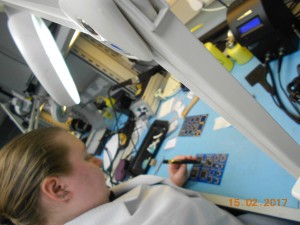 As electronics apprentice, soldering is one of the many skills that is required not only for design and construction but also for the repair of circuits and equipment.
As electronics apprentice, soldering is one of the many skills that is required not only for design and construction but also for the repair of circuits and equipment.
Soldering is the method of bonding two or more items together; mainly for the bonding of electronic components to a PCB (Printed Circuit Board). Soldering may look easy but it’s not as simple as it looks. Anyone can solder but doing it correctly and producing a suitable joint is the difficult bit.
To produce a good solder joint you have to have your soldering iron set at the correct temperature, use a suitable sized tip that has been well looked after and have a clean surface that hasn’t been oxidised. You then have to heat the pin and pad up correctly before applying the correct amount of solder, which is available in many different sizes.
Not using the correct techniques or holding the required skills can result in what is known as a bad joint. There are many different types of bad soldered joints, from cold joints (where the solder hasn’t melted fully before the heat was removed) and insufficient wetting joints (Where the pad of the PCB or the pin of the component hasn’t been heated and the solder hasn’t been given time to flow) to overheated joints. There can also be bad joints due to too much solder or not enough, solder bridges (shorts), pads can also be lifted and even solder splatters can cause problems. Whether it is now or ten years down the line, all these things will result in failure.
To make things more difficult, components aren’t just through-hole (Pushed through a hole and soldered on the other side), they are now also available surface mount. This means you also have to place components correctly over a pad and solder to the pad or use solder paste.
At the university most PCB’s are populated using through-hole components. But the University is starting to incorporate a lot more surface mount components into the many PCB’s that are designed and constructed. As well as this, most equipment that we repair contains surface mount components. This requires electronic technicians to be able to solder and de-solder through-hole components as well as surface mount.
As an apprentice I haven’t had much experience when it comes to surface mount components. But being able to solder them and produce a good joint is an essential skill which is needed. For this reason I attended an introduction course and an advanced course in soldering surface mount components.
The course was in Leeds, and ran for 3 days. Moving from conventional through-hole soldering to working with surface mount components was daunting. Soldering surface mount was completely different and new techniques were required and new skills had to be mastered.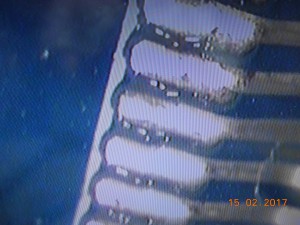
I went from soldering basic Surface mount Chips incorrectly to being able to solder 160 pin Quad flat packs to class 1, 2 and 3 standards.
I learnt how to not onl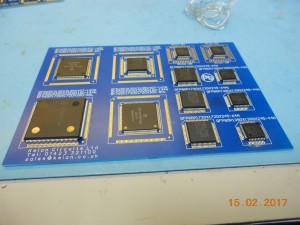 y solder the components using different methods, but also how to remove them, re-align them and prepare/clean the PCB for reworking; a necessary skill for prototype circuit building and repair. I gained techniques in the diagnosis of faults as well and the implications of ESD during handling, storage and packaging of components.
y solder the components using different methods, but also how to remove them, re-align them and prepare/clean the PCB for reworking; a necessary skill for prototype circuit building and repair. I gained techniques in the diagnosis of faults as well and the implications of ESD during handling, storage and packaging of components.
The Surface Mount Soldering Course has aided me immensely giving me skills and knowledge and more importantly confidence to complete surface mount jobs given.
Being part of the Apprenticeship scheme gives you many opportunities to improve on skills and knowledge which is essential to your chosen career path, opportunities which aren’t as available outside of the University environment. I am always grateful for opportunities offered to me, especially when they aid me in my career and allow my passion and enthusiasm to grow.
Becoming a Laboratory Technician
My first post on this blog was entitled “Becoming an Apprentice”, and at the time I had been working at the university as an apprentice for just over six months. As I near the end of my first semester as a member of staff in the School of Materials, it feels like a good time to reflect on the differences between the beginning and the end of my apprenticeship, and talk about the process of beginning to work in a new role at the university.
Over three years ago, I was asking myself the question “what am I going to do next?” and the University of Manchester gave me the answer to that question in the form of an amazing opportunity to become one of the apprentice laboratory technicians, gaining experience in laboratories all throughout the university alongside gaining multiple qualifications and attending training sessions designed to prepare me for a future role at the university.
One thing I’ve learnt about life over the last few years however is that even when you have an answer, you should still be asking yourself ‘what next?’. The nature of the apprenticeship at the university means that there is no guaranteed job at the end of it. This isn’t because the university doesn’t want you to stay with them after your training, in reality it’s completely the opposite. The apprenticeship gives you the opportunity to find out what you want your next step in your career path to be, and to discover for yourself what type of laboratory you’re interested in working in. After your first two years as an apprentice, you are provided with plenty of support to apply for roles at the university that you are well suited to.
This level of support was what lead me to apply for two amazing roles within the university during the summer this year, and ultimately it resulted in one of the most unusual afternoons I’ll ever experience. Both jobs were in areas I had previously enjoyed working in throughout my apprenticeship, and I was offered two interviews both scheduled for the same afternoon. Within the space of three hours I interviewed for, and was offered, two different roles within the university which both speaks wonders about the apprenticeship scheme in general, and offers reassurance to people wondering what will happen once they reach the end of their apprenticeship. The university is definitely dedicated to ensuring that the young people they support through their training become permanent members of the university’s support staff.
It was very difficult to decide which role to accept, but after the first few months of working in the School of Materials, I’m starting to feel settled in my new role, and am confident that no matter what decision I had made I would have been thoroughly happy with the outcome. Just because I’m no longer an apprentice, the learning curve is far from over, and I’m slowly starting to adjust to the higher levels of responsibility involved, and the extra levels of organisation and planning that can be taken on when you know you’re going to be working in one place for longer than a few months.
Many of the ‘original’ cohort of apprentices already have permanent roles at the university, and I wish the best of luck for the future to the current apprentices, both those who are just starting to wonder what is next for them at the university and look into applying for roles, and those who have just discovered that the apprenticeship scheme is what the next couple of years will hold for them.
A huge thank you is in order to everyone involved in the apprenticeship scheme for the opportunity and the help and support they’ve provided over the last few years, and I can only hope that I’ll be able to provide similar support to future cohorts of apprentices at the university!
Electronica – Munich, Germany 2016
As an apprentice with The University of Manchester you are given many opportunities to enhance your future and discover more about your chosen career path. For me one of these opportunities i was presented with was an opportunity to go to the world’s leading Trade Fair for Electronic Components. This trade fair is called Electronica; it happens every 2 years and is based in Munich, Germany.
Since January this year I have been part of the Chemistry (now Chemistry and Physics) Electronics workshop. From day 1 I have been treated as a vital member of the electronics team and have been given so much support from everyone allowing my enthusiasm and passion for electronics to grow even further. When Steve, the workshop manager, found out I was to be located here for the remainder of my apprenticeship he quickly invited me to go along to the trade show with them.
After getting the go ahead from Colin, the hotel was booked, the flights were booked, everything had been paid for. So, on Tuesday 8th November I got up at 4am to catch a 7am flight to Munich. I couldn’t believe I had been given an opportunity like this, it started to sink in just how lucky I was to be in this position and made me feel like all my hard work and effort was paying off.
But believe me, this was no holiday!
Electronica was 143,000 Square meters; it consisted of 13 halls and lasted for 4 days. From PCB’s, Semi-conductors, Sensors, connectors, displays and even a hall full off boxes, Electronica had everything you could think off. It’s the place to go to find out about all the latest developments, meet companies, and create contacts…it’s like an entire world of electronics. It had 73,000 visitors from over 80 countries.
Electronica was huge, I was overwhelmed at just how big the trade fair was and how advanced technology was becoming. The amount of knowledge available in just one place was amazing; it was like walking into a book and not knowing where to start. Apart from coming back with numerous bags and pens, and blisters on my feet, I also came back with knowledge on where electronics is heading, the latest software’s being developed, ideas for my HNC project, even ideas on how to complete certain jobs I have been given. I met managing directors, I met sales people, I met designers…I even met a few people who had studied at The University of Manchester or had family here. I saw devices for picking up tiny surface mount components, devices for testing boards, devices for making PCB’s, I saw the one of the fastest electric super-bikes, I even got a free (much needed after a long day walking) pint from the Farnell Stand.
My favourite hall was the Test and Measurement hall; it contained all the latest equipment from oscilloscopes and function generators, to thermal imaging cameras and high-tech medical equipment. I saw so much that was useful and that I would love to have on my work bench that I need to start saving.
I am grateful to have had this opportunity, it has really opened my eyes to how much is out there and how electronics really is the future. It’s given me a real boost in pushing myself even further to achieve. Fingers crossed for the opportunity to go in 2018. 
The Dean’s Summer BBQ
Amongst the recent rainy summer days, a day as lovely as today has been can only mean one thing – a barbecue! For the second year the Dean of the EPS (Engineering & Physical Sciences) Faculty, Martin Schröder, has organised a summer barbecue for staff to “say thank you for all [their] hard work”. With over 650 staff members expected to attend, lots of planning was required, and so the weather couldn’t be anticipated. Back up plans had to be made to move the party inside if things got too downcast, but thankfully those plans weren’t needed. The weather was on our side!
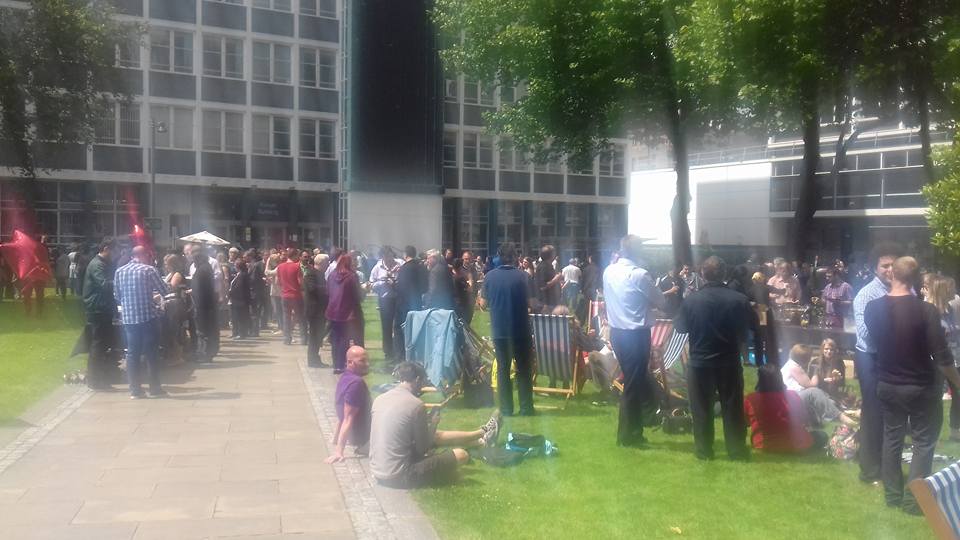
We had some wonderful food and drink, including some none-traditional barbecue food such as pulled pork, and salted caramel & peanut butter ice cream… not on the same plate of course!
Along with the interesting food, there was also some great entertainment over the course of the event that showcased some of the university’s work. EEE (Electrical and Electronic Engineering) were busy racing their model cars, while Computer Science’s voice activated robots had a dance off, showed off their athletic skills with some pressups, and even fell over a few times – the surface out on the Pariser Lawn is a bit uneven, but it’s no trouble for the robots, who can easily stand themselves back up and get back to their dance moves.
All in all a lovely way to spend lunch time, and a lovely sentiment from the faculty’s Dean. We’re looking forward to next year!
Team Building in Snowdonia
Over two years ago I blogged about the apprenticeship scheme’s very first team building trip. In some ways it seems like a lifetime ago, and yet I find it hard to believe that I’m now halfway through my third year of working for the university.
A couple of months ago, members of all three cohorts of attended our third annual team building trip, filled with countless similarities and differences to the previous trips.
The first difference was the location… this time around rather than heading for the Lake District, we hopped on a coach that was bound for the Welsh coast.
Okay, that might be stretching the truth as we never actually quite made it to the beach. Blue Peris, the activity centre in Snowdonia we were really headed for, do offer some coastal activities nearby in Anglesey that sound amazing, but the lovely spring weather didn’t agree with us on that front. Fortunately, the weather didn’t stop us having a fantastic time, and meant that enthusiastically throwing buckets of water into each other’s canoes on our last day wasn’t quite as frowned upon as it might have been if we’d ever had a hope of staying dry.
The second big difference was the fact that some of the apprentices had been on one or two previous team building trips. Every time I attend a team building event I come away from it feeling accomplished, and feel I’ve gained new skills that, but there are definitely key themes that stay with you and become much easier to adjust to each time. For the new apprentices, some of the ‘trust exercises’ may have felt uncomfortable at first, especially as there were members of the first and second cohorts of apprentices they’d not had many chances to speak to previously. I definitely remember feeling awkward during the first day of the 2014 team building, but by now it’s second nature to jump in and get involved, either taking the lead in an activity or identifying someone in your team who has the skills needed to take the lead instead.
The similarities came in the form of the actual activities we took part in. There were definitely some new experiences, for example traversing along the side of a gorge rather than actually walking along the river bed was an interesting twist on gorge walking, but there were lots of similar activities such as abseiling, canoeing, raft building, and rock climbing. We even climbed another mountain!
Although the view from the top of Yr Aran was obstructed by the huge grey rain clouds, which made it slightly less picturesque than last year’s climb up Helvellyn in the Lake District, reaching the top still gave everyone a great sense of achievement.
Each of the activities we took part in earned us a piece of a map and some coordinates and along with night walks around the quarries, a lovely meal at a local pub, and a surprisingly competitive game of pictionary, our evening activities involved using the ‘clues’ we were given each night, and figuring out how they came together to give us the mystery location of our final activity, the previously mentioned (and brilliantly fun) canoeing “debacle”, which turned into an impressive battle of water buckets!
University Technical Apprenticeship Vacancies
University Technical Apprenticeship Vacancies ‘Go Live’ at the Apprenticeship website on 1st July. http://www.apprenticeships.org.uk

